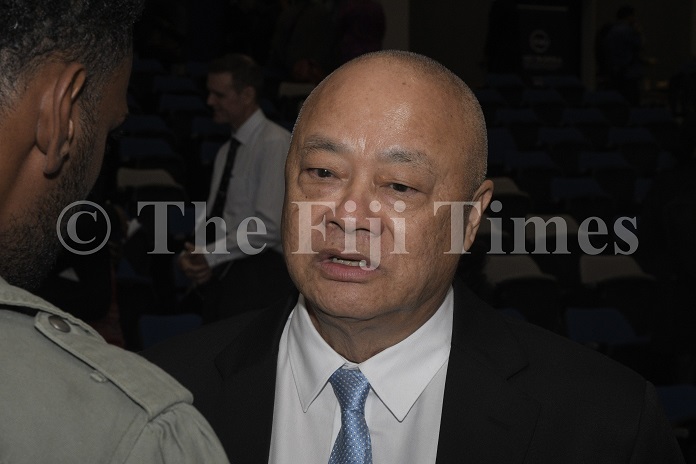Numerous references to the Attorney-General in the 2013 Constitution are aspects which need to be reviewed.
Attorney-General Graham Leung said the person in that position was given too much power, which was dangerous and could lead to abuse in the wrong hands.
Speaking on the need to review the Constitution, Mr Leung said Professor Anthony Regan of the Australian National University (ANU) was invited to start a serious dialogue on the way forward if there was consensus that the document needed to be changed.
“I think it’s an open secret that the major political parties’ manifestos in the 2022 elections expressed dissatisfaction of some sort with the 2013 Constitution,” Mr Leung said.
“More recently the Supreme Court observed that it was the result of a handful of people who drafted it. It was not the result of a democratic process reflecting the will of the people.
“Everyone is aware of what it says about how that change can be done. Obviously, it was written in such a way to make it very difficult.”
Mr Leung said this week’s public lecture was a good place to start a conversation about constitutional reform.
He said several questions needed to be asked, including what needed to change and what was worth retaining.
The Attorney-General said the Bill of Rights claimed to give people all manner of rights but went on to say the same rights must be limited.
“In our previous Constitution of 1997, rights could only be limited if they were reasonable and justified as would be consistent with the freedoms in a democratic country.
“The open list system of proportional representation in the electoral system, where a candidate for election must receive 5 per cent of the total votes cast to be elected, is another issue with the Constitution – it is unfair and undemocratic.
“A candidate receiving a couple of hundred votes can be elected to Parliament, and yet someone who polls thousands, is excluded.”
Mr Leung said there have been many calls for change, but he believed this was the first positive step being taken to frame the discussions in a constructive and thoughtful manner.
He said this change required a thoughtful process moving forward.
“I don’t think we can give a knee-jerk reaction to a very complex issue, and I think that came out quite strongly in the lecture tonight (yesterday) that we need to give consideration to the process as well as the content.”



